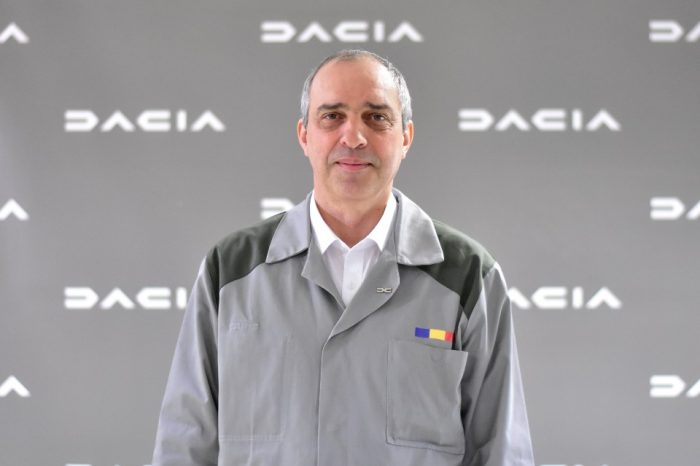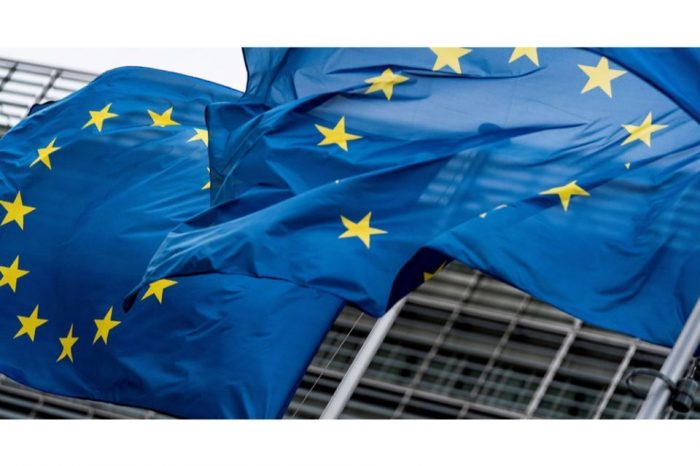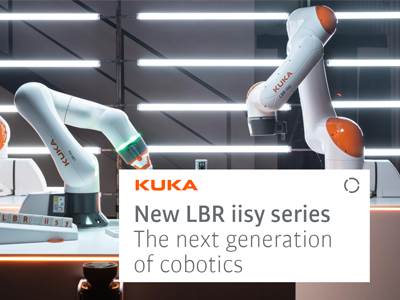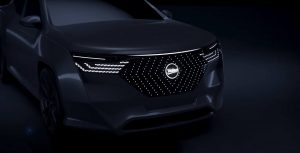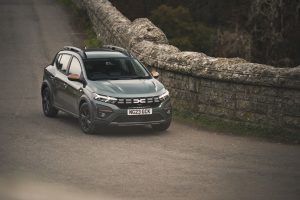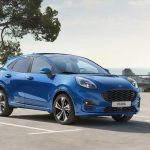Ford’s new breed of electrified vehicles to surpass combined diesel and petrol models by 2022
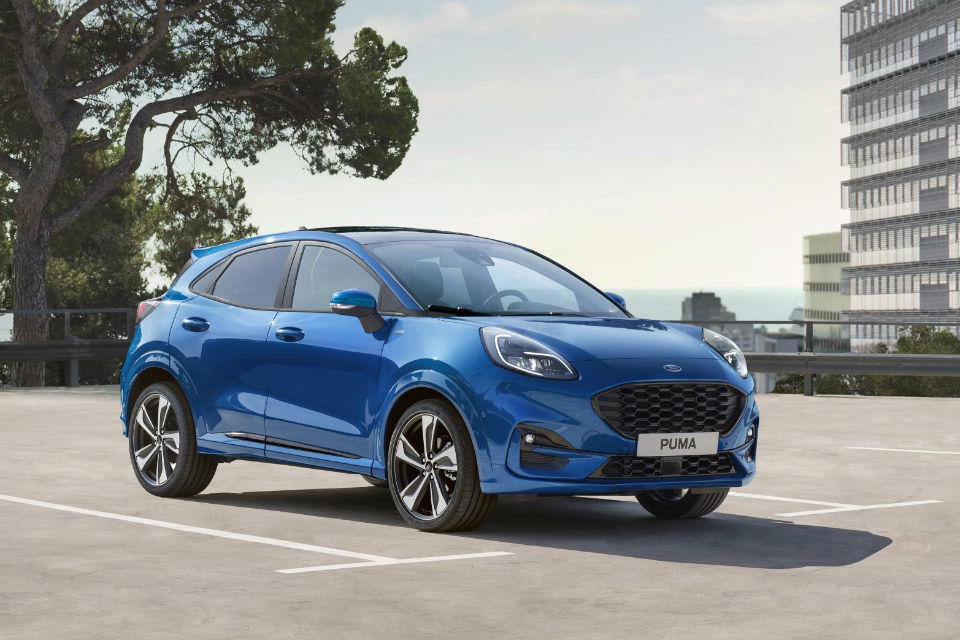
Ford premiered at the Frankfurt Motor Show a range of new vehicles that will help pave the way for electrified models to outnumber combined sales of conventional diesel and petrol models in just a few years.
“With electrification fast becoming the mainstream, we are substantially increasing the number of electrified models and powertrain options for our customers to choose from to suit their needs,” said Stuart Rowley, president, Ford of Europe. “By making it easier than ever to seamlessly shift into an electrified vehicle, we expect the majority of our passenger vehicle sales to be electrified by the end of 2022.”
Earlier this year, the company committed that every new Ford passenger vehicle nameplate in Europe will include an electrified option, and shared its initial plans at a special “Go Electric” event in Amsterdam. Among the electrified vehicles now being showcased in Frankfurt are the all-new Kuga Plug-In Hybrid and all-new Explorer Plug-In Hybrid SUVs, as well as the new Tourneo Custom Plug-In Hybrid people-mover, the new Puma EcoBoost Hybrid compact crossover and the Ford Mondeo Hybrid wagon.
Ford’s new Mustang-inspired all-electric performance SUV will arrive in 2020, with a targeted pure-electric driving range of 600 km (more than 370 miles) calculated using the World Harmonised Light Vehicle Test Procedure (WLTP), and fast-charging capability.
In total, Ford plans to launch eight electrified vehicles this year that will contribute to sales of 1 million electrified vehicles in Europe projected by the end of 2022. A further nine vehicles are planned for introduction by 2024.
The high specification new Puma Titanium X debuted in Frankfurt, featuring standard technologies usually reserved for large executive cars. The SUV-inspired compact crossover model delivers innovative removable seat covers, as well as comfort-enhancing lumbar massage seats and convenient wireless charging for compatible smartphones.
The Puma Titanium X offers EcoBoost Hybrid mild-hybrid technology for enhanced fuel efficiency and performance – one of a range of electrified powertrain solutions for Ford vehicles alongside self-charging full-hybrid; plug-in hybrid; and all-electric.
“There is no ‘one-size-fits-all’ solution when it comes to electrification – every customer’s circumstances and travel needs are different,” said Joerg Beyer, executive director, Engineering, Ford of Europe. “Our strategy is to pair the right electrified powertrain option to the right vehicle, helping our customers make their electrified vehicle experience easy and enjoyable.”
The company also announced details of new pan-European charging solutions that will support electrified vehicle owners and operators with a stress-free experience, helping Ford plug-in hybrid customers to be even more confident of reaching their destinations in comfort.
Ford will partner with six energy suppliers in Europe, including Centrica in the U.K. and Ireland, to install home charging wall boxes and provide green energy tariffs that will make charging faster and more affordable for customers. A further initiative in partnership with NewMotion will help drivers locate and pay for charging more easily at more than 118,000 charging points in 30 countries.
Ford – Volkswagen expand their global collaboration to advance autonomous driving, electrification
Ford Motor Company and Volkswagen AG announced they are expanding their global alliance to include electric vehicles – and will collaborate with Argo AI to introduce autonomous vehicle technology in the U.S. and Europe – positioning both companies to better serve customers while improving their competitiveness and cost and capital efficiencies.
Volkswagen CEO Dr. Herbert Diess, Ford President and CEO Jim Hackett as well as Argo AI CEO Bryan Salesky announced Volkswagen is joining Ford in investing in Argo AI, the autonomous vehicle technology platform company.
Working together with Ford and Volkswagen, Argo AI’s self-driving system (SDS) is the first with commercial deployment plans for Europe and the U.S. Plus, being able to tap into both automakers’ global reach, Argo AI’s platform has the largest geographic deployment potential of any autonomous driving technology to date. Volkswagen and Ford independently will integrate Argo AI’s SDS into purpose-built vehicles to support the distinct people and goods movement initiatives of both companies.
Argo AI’s focus remains on delivering a SAE Level 4-capable SDS to be applied for ride sharing and goods delivery services in dense urban areas.
Ford and Volkswagen will have an equal stake in Argo AI, and combined, Volkswagen and Ford will own a substantial majority. The remainder will be used as an incentive pool for Argo AI employees. The full transaction is subject to regulatory approvals and closing conditions.
“While Ford and Volkswagen remain independent and fiercely competitive in the marketplace, teaming up and working with Argo AI on this important technology allows us to deliver unmatched capability, scale and geographic reach,” Hackett said. “Unlocking the synergies across a range of areas allows us to showcase the power of our global alliance in this era of smart vehicles for a smart world.”
Company leaders also announced Ford will become the first additional automaker to use Volkswagen’s dedicated electric vehicle architecture and Modular Electric Toolkit – or MEB – to deliver a high-volume zero-emission vehicle in Europe starting in 2023.
Ford expects to deliver more than 600,000 European vehicles using the MEB architecture over six years, with a second all-new Ford model for European customers under discussion. This supports Ford’s European strategy, which involves continuing to play on its strengths – including commercial vehicles, compelling crossovers and imported iconic vehicles such as Mustang and Explorer.
Volkswagen started developing its MEB architecture in 2016, investing approximately $7 billion in this platform. The car-maker is planning to use this platform to build approximately 15 million cars for the Volkswagen Group alone in the next decade.
For Ford, using Volkswagen’s MEB architecture is part of its more than $11.5 billion investment in electric vehicles worldwide – and supports Ford’s commitment to offer its European customers a broad range of electric vehicles while meeting its sustainability commitments.
“Looking ahead, even more customers and the environment will benefit from Volkswagen’s industry-leading EV architecture. Our global alliance is beginning to demonstrate even greater promise, and we are continuing to look at other areas on which we might collaborate,” Diess said. “Scaling our MEB drives down development costs for zero-emissions vehicles, allowing for a broader and faster global adoption of electric vehicles. This improves the positions of both companies through greater capital efficiency, further growth and improved competitiveness.”
The alliance, which covers collaborations outside of Volkswagen and Ford’s joint investments in Argo AI, does not entail cross-ownership between the two companies and is independent from the investment into Argo AI. The alliance is governed by a joint committee, which is led by Hackett and Diess and includes senior executives from both companies.
The companies also are on track to deliver medium pickup trucks for global customers, aiming to start in 2022, followed by commercial vans.
Equal Shareholders in Argo AI
Volkswagen will invest $2.6 billion in Argo AI by committing $1 billion in funding and contributing its $1.6 billion Autonomous Intelligent Driving (AID) company, which includes more than 200 employees – most of whom have been developing self-driving technology for the Volkswagen Group.
As part of the transaction, Volkswagen also will purchase Argo AI shares from Ford for $500 million over three years. Ford will invest the remaining $600 million of its previously announced $1 billion cash commitment in Argo AI.
The full transaction represents a valuation for Argo AI that totals more than $7 billion.
Both automakers see significant potential, including profitable growth by tapping new business areas tied to autonomous technology.
Argo AI plans to work closely with Ford and Volkswagen to provide the autonomous vehicle technology the automakers need to deliver fully integrated self-driving vehicles that can be manufactured at scale for safe, reliable and durable deployment in ride sharing and goods delivery services.
“Argo AI is fortunate to have a world-class team due to our clear mission and the commitment to deployment from our partners, and together with AID employees, we will have a global workforce to attract even more of the best talent,” said Salesky, co-founder of Argo AI. “Plus, thanks to Ford and Volkswagen, Argo AI technology could one day reach nearly every market in North America and Europe, applied across multiple brands and to a multitude of vehicle architectures.”
Based in Munich, Germany, AID will become Argo AI´s new European headquarters and will be led by AID’s current CEO Karlheinz Wurm. With the addition of AID employees, Argo AI will grow from 500 to over 700 employees globally.
In addition to its global headquarters in Pittsburgh, Pa., the new location marks Argo AI’s first engineering center in Europe and the fifth globally in addition to Dearborn, Mich.; Cranbury, NJ; and Palo Alto, Calif. Collaborating with Ford, Argo AI also is testing its technology in Miami and Washington, D.C., where together they plan deployment of commercial services.
Ford to Use Volkswagen’s MEB Electric Vehicle Architecture for 600,000 Vehicles
Ford plans to design an all-new, MEB-platform-based EV model, which starts arriving in 2023, in Köln-Merkenich, Germany. Volkswagen will supply MEB parts and components as part of the collaboration.
Both companies also will continue to target additional areas where they can work together on electric vehicles – a key strategic priority for both companies as they drive to accelerate the transition to sustainable and affordable mobility.
The agreement with Ford is a cornerstone in Volkswagen’s electric strategy, supporting the growth of the e-mobility industry and facilitating global efforts to reach the Paris 2050 Agreement.


